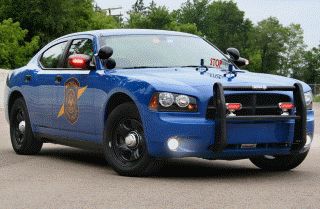Kregelka Law Firm, PLLC
Attorneys, Counselors and Strategic Planners
517-256-9537
KregelkaLaw@gmail.com
Serving mid-Michigan since 2002

If you've been charged with a traffic offense, the experienced attorneys at The Kregelka Law Firm can help you obtain the best outcome possible. Attorney Garry Kregelka has prosecuted thousands of traffic cases as the Meridian Township Prosecutor, and he has successfully defended drivers on everything from simple speeding tickets to felonious drunk driving.
In addition to his experience as a prosecutor and defense lawyer, attorney Garry Kregelka also enforced traffic laws as a Michigan State Police trooper, and he supervised those who do as a State Police Post Commander and as a Chief of Police. He knows the law, he knows how the system works, and he is uniquely qualified to provide you with the best possible legal representation in traffic-related matters.
Call 517-256-9537 or 517-917-0345
Email: KregelkaLaw@gmail.com
All major credit cards are accepted.
Why Should I hire an attorney for a traffic offense?
It often pays to have an attorney represent you if you have been charged with a traffic offense, because the consequences of a traffic violation often don’t end with the fine and costs. There may be sanctions imposed by the Secretary of State, such as points, driving restrictions or even suspension of your driving privileges. In addition, your auto insurance premiums may escalate. An attorney can often argue more effectively on your behalf than you can and may be able to negotiate a favorable plea agreement, or, if there is a weakness in the prosecutor’s case, obtain a dismissal or a finding of not guilty or not responsible. The Kregelka Law Firm offers professional, experienced representation with regard to traffic offenses.
Traffic Tickets FAQ's
1. How can they get me on radar when I am going in the other direction? 2. I want to contest my traffic citation. What do I need to do?
The vascar, radar, laser or lidar speed measurement device is designed to receive and calculate the speeds of vehicles which are approaching from the opposing direction and while the police car is being driven by the officer. The computer part of the system will automatically subtract the police car's speed from the speed measurement of the oncoming citizen vehicle.
You must promptly contact the District Court in whose jurisdiction you were issued the violation (usually listed on the back side of your copy of the ticket). The court will instruct you on how to proceed.
3. Do I get points on my driving record for traffic tickets? 4. Will the Secretary of State take away my license because of tickets? 5. Will the traffic ticket affect my insurance rates? 6. What traffic tickets/violations are 'waivable'?
Most traffic tickets have a point value assessed to the specific violation. Points are assessed by the Secretary of State. View the "Michigan Driver’s License Point System Overview" below on this page, or click on Michigan Secretary of State's Offense Code which includes point value of each traffic offense.
The Secretary of State will review a driver's record, and likely send a warning letter when a driver obtains 6 points on the driving record. A driver with 12 points or more may be suspended or have driving privileges restricted.
All insurance companies request driving records from the Secretary of State. Insurance companies determine an insured driver's rate based on tickets, accidents and other data. Contact your own insurance company for more information.
There are only two violations that can be waived, signed off, or certified by a police officer -- violations for NO LICENSE ON PERSON and for DEFECTIVE EQUIPMENT. For additional information, contact your local District Court.
Reporting Accidents
Drivers involved in automobile accidents should immediately telephone the local police department to report the accident. Unless there are injuries or a circumstance that merits immediate police response, drivers or passengers need not dial 911. In most situations police officers respond to all accidents, regardless of how minor, so it is generally recommended that the vehicles not be moved from the scene unless absolutely necessary. Drivers may wish to drive to the police department to report their accident in person, but only if both parties agree as to the facts and circumstances of the accident.  A person involved in an accident has a duty to stop, render assistance in seeking medical aid to the injured, exchange identifying information, notify property owners, and report the accident to authorities. Leaving the scene of an accident without doing these things is a crime, and where there is injury it could a felony.
A person involved in an accident has a duty to stop, render assistance in seeking medical aid to the injured, exchange identifying information, notify property owners, and report the accident to authorities. Leaving the scene of an accident without doing these things is a crime, and where there is injury it could a felony.
Reporting Accidents FAQ's
1. Why do both drivers have to be present with their vehicles to make an accident report? Michigan Driver’s License Point System Under Michigan law, some traffic violations are civil infractions while others are misdemeanors or felonies. Depending on the violation and how it is resolved, you may be fined, referred to a special program or, in the most serious situations, sent to jail. In most cases, if you do not take care of a traffic ticket, your driver license will be suspended. Each time you are convicted of a traffic violation, you will have to pay certain court fines and costs. In addition, points may be posted to your driver record. Under Michigan’s point system, each traffic violation has a point value, which is set by law in the Michigan Vehicle Code. Points are placed on your driver record only after you have been convicted or found guilty of or responsible for a civil infraction. Points placed on your driver record remain there for two years from the date of conviction. If you believe there are extenuating circumstances for the ticket you received, these must be submitted when you appear in court. The Secretary of State cannot set aside a court conviction or the points for it. The following shows the points for some traffic violations: Points For Some Common Traffic Convictions* Six Points: Manslaughter, negligent homicide, or other felony involving use of a motor vehicle. Operating under the influence of liquor or drugs. Failing to stop and give identification at the scene of a crash. Reckless driving. Unlawful bodily alcohol content of 0.08 or more. Refusal to take a chemical test. Fleeing or eluding a police officer. Four Points: Drag racing. Operating while visibly impaired. Under age 21 with any bodily alcohol content. 16 mph or more over the legal speed limit. Failure to yield/show due caution for emergency vehicles. Three Points: Careless driving. Disobeying a traffic signal or stop sign or improper passing. 11 through 15 mph over the legal speed limit. Failure to stop at railroad crossing. Failure to stop for a school bus or for disobeying a school crossing guard. Two Points: 10 mph or less over the legal speed limit. Open alcohol container in vehicle. All other moving violations of traffic laws. Refusal of Preliminary Breath Test (PBT) by anyone under age 21. * Note: Snowmobile and off-road vehicle (ORV) alcohol-conviction points are also placed on a driver record and may result in licensing action against your driving privileges even though the violation happened while operating a snowmobile or ORV. TIPS FOR SAFE DRIVING If you talk with experts like professional drivers, police officers, accident reconstructionists, driving instructors, and traffic safety experts, you'll find a number of common suggestions for safe driving, because failure in these areas contributes to most traffic crashes. • Scan Mirrors and Maintain Situational Awareness: If you don't know what's going on behind you, beside you and coming up ahead it's hard to anticipate what other drivers (or kids, animals, etc.) might do in time to act preemptively rather than react after something's already started to happen. At 60 mph, a second or two can be the difference between having an accident and not having one. Pay attention to your mirrors, the traffic around you and what's happening on the road and you'll vastly improve your chances of avoiding situations that end up in crunched fenders (or worse).
Michigan law requires that the police officer complete the accident form in full and that the department immediately forward the report to the Director of State Police. By having both vehicles and drivers present during the interview and investigation stage of the reporting process, it is assured that all information receives equal consideration in determining the cause of the accident.
2. If I am involved in a minor traffic accident and the other driver suggests that we exchange information now and report the accident to the police later, what should I do?
Part of the Michigan law that addresses accidents requires that you exchange your name, vehicle owner's name, address, and the registration number of the vehicle. The law also states if the apparent extent of damage totals $1000.00 or more that you shall immediately report the accident to the police. Many police departments require that if an accident is reported at a later time at the police station, all drivers and vehicles involved must be present at the same time to complete an accident report.
3. I didn't receive a ticket, so why does my insurance company say I have points for my accident?
Most insurance companies have formulated their own point system - not to be confused with Secretary of State's point system - which assists the insurance company in what rate is charged for your particular automobile insurance policy. The insurance company may assign points on your insurance record if you were determined to be at fault in an accident, even if the officer did not issue you a ticket.
• Properly Estimate Speed, Distance, and Spatial Relationships: When in Any Doubt Give Yourself Extra Time: The classic example here is the driver who pulls out from a side road in front of traffic without giving himself adequate time to bring his car up to the speed of traffic, forcing other drivers to brake suddenly (or swerve) to avoid striking him. Some drivers are naturally better at estimating the speed/distance of other vehicles in relation to their own -- but a good rule of thumb is if you have any doubt about your ability to safely pull into an intersection, wait. It's better to lose a minute or even two than your life -- or someone else's.
• Drive Smoothly: Expert drivers avoid abrupt inputs such as braking late (and therefore harder than necessary) and jerking the steering wheel abruptly rather than making controlled, progressive inputs. Violent maneuvering throws a car's mass around and unsettles its balance; it makes loss of control much more likely -- especially with an average or below-average driver behind the wheel. Good drivers anticipate the need to brake and turn, which means they are less likely to find themselves having to use over-aggressive inputs to slow the car or make a turn safely without (for example) crossing over the double-yellow line.
• Go with the Flow: Good drivers have one habit in common: They don't obstruct the flow of traffic by adamantly driving at or below the posted speed limit when it's clear other cars (and traffic in general) is moving faster. Such drivers mistakenly believe they're in the right, legally speaking -- "I'm doing the speed limit!" -- but in fact they are impeding the flow of traffic, which is also illegal in most states. Safe drivers try to drive within 5 mph of the prevailing speed of the cars around them -- and yield to faster-moving traffic if they're uncomfortable about keeping up with the pace or driving a few miles per hour faster than the posted limit.
• Practice Lane Courtesy: Good drivers use the far left, or passing lane, for just that -- passing. If you're not overtaking another car or driving slightly faster than the prevailing flow of traffic, you should not be in the left lane. Period. Drivers who plant themselves in the far left lane and set their cruise control are both aggravating and dangerous -- because they force other drivers to pass on the right and create unsafe "speed variance" that disrupts the natural flow of traffic. One reason the German autobahns are so safe compared to U.S. roads is that German drivers religiously practice lane courtesy -- and are taught to yield to faster-moving traffic.
• Maintain a Safe Following Distance: Good drivers always leave an "envelope" of space between their car and the cars ahead. They never tailgate. Following too closely doesn't leave an adequate cushion of space to brake in time to avoid a rear-end collision should the car ahead slow suddenly. In addition, "riding the bumper" of the car ahead ratchets up tension -- making the other driver nervous and thus more likely to make an error that could result in a collision. It also leads to road rage -- and in today's world, that can end up involving consequences far more serious than a roadside fistfight. There's no excuse for tailgating -- ever. Don't do it.
• Know Your Limits: A good example here is the older driver with poor night vision who nonetheless continues to drive after dark. Or the driver who tends to "fall asleep at the wheel" -- but still insists on driving solo for long stretches without stopping for coffee (or an evening's rest in a hotel). There's also the reckless driver (any age, any sex) who thinks he or she has the skill of Dale Earnhardt, but who in fact, has no real training and would have trouble making it through the cones on a basic SCCA circuit. As with almost anything else in life, getting in over your head can get you into real trouble.



